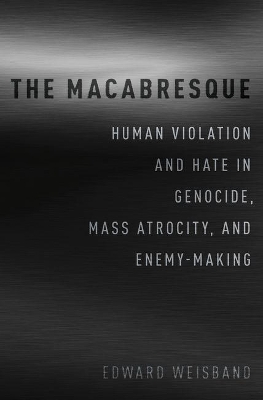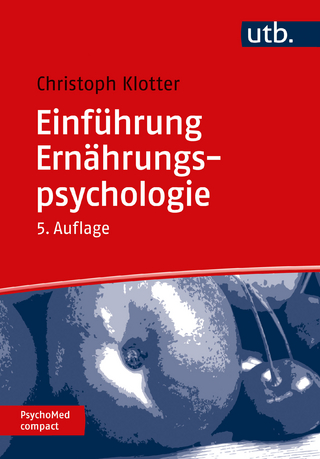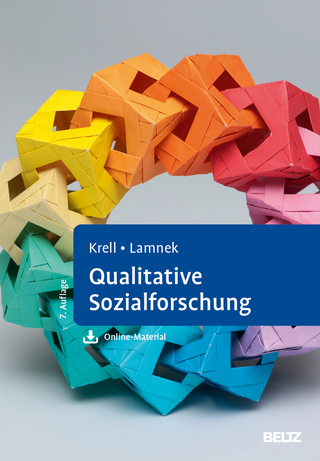
The Macabresque
Oxford University Press Inc (Verlag)
978-0-19-067788-6 (ISBN)
In The Macabresque, Edward Weisband looks at different episodes of mass violence (Chinese Cultural Revolution, the Holocaust, post-Ottoman Turkey, Cambodia, Rwanda, and Bosnia, among other instances) to consider why different methods of violence were used in each and how they related to the particular cultural milieu in which they were perpetrated. He asserts that it is not accidental that certain images capture our memory as emblematic of specific genocides or mass atrocities (the death marches of the Armenian genocide, mass starvation in the Ukraine, the killing apparatus and laboratories of the Holocaust, the killing fields of Cambodia) because such violence assumes a kind of style each time and place it arises. Weisband looks at these variations in terms of their aesthetic or dramaturgical style, or what he calls the macabresque. The macabresque is ever present in genocide and mass atrocity across time, place and episode. Beyond the horrors of lethality, it is the defining feature of concentration and/or death camps, detention centers, prisons, ghettos, killing fields, and the houses, schools and hospitals converted into hubs for torture. Macabresque dramaturgy also assumes many aesthetic forms, all designed to inflict hideous pain and humiliating punishments, sometimes in controlled environments, but also during frenzied moments of staged public horror. These kinds of performative violations permit perpetrators to revel in their absolute power but simultaneously to project hatred, revenge and revulsion onto victims, who embody the shame, humiliation and loss felt by their torturers. By understanding how and why mass violence occurs and the reasons for its variations, The Macabresque aims to explain why so many seemingly normal or "ordinary" people participate in mass atrocity across cultures and why such egregious violence occurs repeatedly through history.
Edward Weisband is the Edward S. Diggs Endowed Chair in the Social Sciences at Virginia Tech. He is the author of ten books, including Turkish Foreign Policy, 1943-1945, Political Culture and the Making of Modern Nation States, Nations and Nationalities, Global Accountabilities, Secrecy and Foreign Policy, and World Politics.
Preface
Acknowledgments
Part I: The Macabresque of Human Violation
Introduction: Taking Performativity Seriously
1. From Collective Violence to Human Violation: Dark Desires in Disorders of Will
Part II: On the "Normality" of Perpetrators: How We Know Them, How They Know Themselves
2. Perpetrators Alone and Together: Analytical Perspectives, Methodological Critiques
3. One Mind, Heart, and Spirit: Reductionist Traps in Psychosocial Theory
4. The Modalities of Desire in Mimetic Rivalry: Sin, Sign, and Symbol
5. Human Development and the Political Subject: The Lacanian Scaffolding in Psychosocial Perspectives
6. Perversity in the Performative: Sadism and Shame in the Macabresque
Part III: Cultural Contexts: Case Studies of Performativity in the Macabresque
7. The Lurid and Ludic in the Chinese Cultural Revolution: Oral Disciplines and Oedipal Aggression in Mao's Re-education Camps
8. Cultural Case Studies in the Macabresque: Variations of Human Violation in the Twentieth Century
The Desert March of Young Turk Predatory Horror
Stalin's Ideological Purgatory
Hitler's Diabolical Laboratory
The Hell of Blood Trauma in the Days of Hutu Power
The Confessional Archive and the Facial Aesthetics of A
The Junta's Neo-Inquisitional Operating Theaters
The Bosnian Shame Camps
Part IV: Politics of the Unreal
9. On the Slippery Tropes of We-ness: Reality and the Unreal in Social Fantasy and Political Ideology
10. The Quest for the Never-Is: Legitimacy-Grounding as Enemy-Making
Notes
Bibliography
Index
| Erscheinungsdatum | 17.11.2017 |
|---|---|
| Verlagsort | New York |
| Sprache | englisch |
| Maße | 236 x 160 mm |
| Gewicht | 816 g |
| Themenwelt | Geisteswissenschaften ► Geschichte |
| Geisteswissenschaften ► Psychologie ► Sozialpsychologie | |
| Sozialwissenschaften ► Politik / Verwaltung ► Politische Theorie | |
| Sozialwissenschaften ► Politik / Verwaltung ► Vergleichende Politikwissenschaften | |
| Sozialwissenschaften ► Soziologie | |
| ISBN-10 | 0-19-067788-0 / 0190677880 |
| ISBN-13 | 978-0-19-067788-6 / 9780190677886 |
| Zustand | Neuware |
| Haben Sie eine Frage zum Produkt? |
aus dem Bereich


